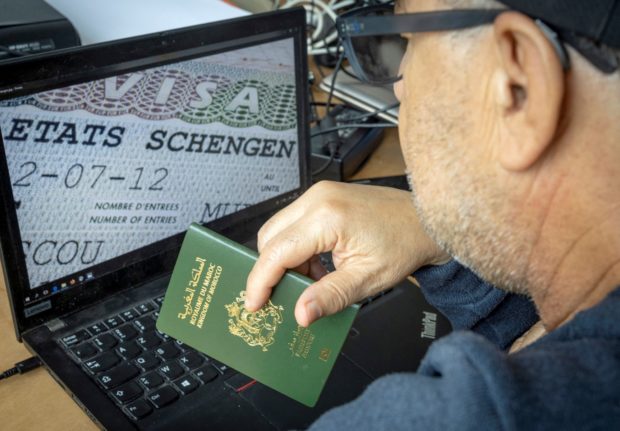RESIDENCY PERMITS
France remains stingy at handing out visas
France finishes significantly below the European average when it comes to total residence permit granted per capita, according to fresh figures from the EU.
Published: 21 October 2015 17:32 CEST

People queue in front of the prefecture of Lyon, central-eastern France, as they wait to obtain a renewal of their residence permit. Photo: AFP
The figures from the EU's stats body Eurostat show that France granted just over 218,000 residence permits last year to non-EU citizens.
That's enough to rank it as fourth in total figures across Europe (behind Poland with 355,000, the UK with 568,000, and Germany with 238,000).
But when ranked according to the respective countries' population, France's 3.3 permits per 1,000 people is well below the EU average of 4.5.
Here, the top countries were Malta and Cyprus, at 23.3 and 16.2 per thousand respectively, and Sweden (at 11.1 per thousand).
Another noteworthy stat for France's visa seekers is the fact that only 8.8 percent of them were applying for job-related reasons – enough to rank France as the second lowest in Europe, ahead only of Bulgaria.
The European average was 24.8 percent.
Meanwhile, 42.2 percent of the permits were issued for family reasons and 30 percent for education reasons.
Of France's nearly 220,000 new visa holders, most came from Morocco (11.8 percent), followed by Algeria (11.6 percent), and China (7.1 percent).
The countries of origin were different for Europe as a whole, with 13.1 percent of visa holders coming from Ukraine, 8.6 percent coming from the US, and 7.4 percent coming from China.
Url copied to clipboard!


 Please whitelist us to continue reading.
Please whitelist us to continue reading.